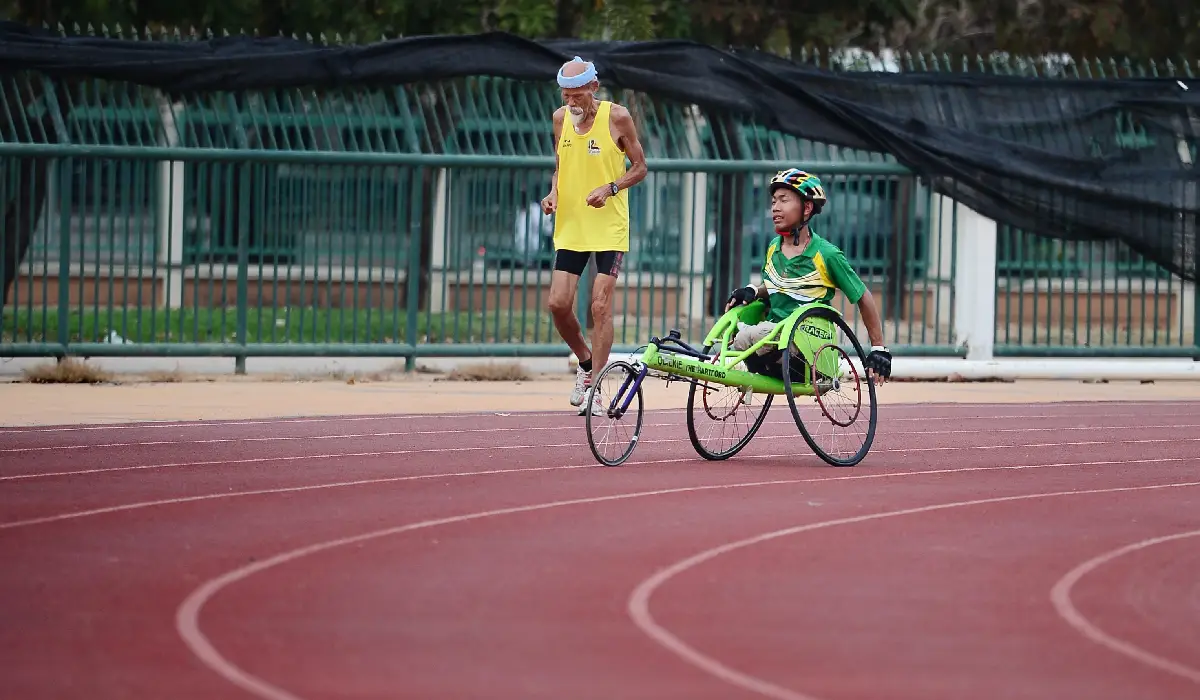
Equality is a myth, truth is deceptive. In the context of the recently concluded Paralympics, the world of sports has witnessed a divide between the haves and the have nots. Paralympics versus Olympics continue to be a topic of discussion and debate, from broadcasting to recognition, the two sporting events should be given equal status however as a famous dictum of George Orwell’s allegorical novel Animal Farm says “all are equal but some are more equal than others”.
Paralympics, “para” literally means“parallel”, which means a sporting event to be conducted hand in hand with the Olympics. These sports for the specially abled did not emerge on a large scale until the end of the 2nd World War, where a massive number of injured and disabled war veterans existed. In a period where war and bloodshed were rampant, sports became a symbol of peace and nationalism.
Started in the Stoke Mandeville Games in Rome. And with the development of various committees, it has embraced and normalised the special abilities of the specially-abled. The main aim of Paralympics is to embrace all impairments and grant opportunities to people who are neglected and voiceless.
Historically, Paralympics have minimal support from the media and the public. The Olympics always have the upper hand as it is being funded and valued by media houses, business entities, governments. A classic example can be witnessed in the Sydney Olympics 2000. During the games, broadcasters in Australia refused to air the Paralympics without charging fees. Additionally, unlike the 24-hour free coverage of the Olympics, ABC only aired short-period highlights and ceremonies.
Stereotypes and Paralympics
The athletes who participate in the competition often generalize as not so important commercially or entertainment-wise. Many media outlets continuously use terms such as “supercrips” or “suffering” to describe Paralympic athletes. They are being branded as ‘mechanised human beings’. As argued by one of the participants Watt, people should view Paralympians as extraordinary as they put effort into the little they have.
Watt said…
“I think at least personally, sometimes people see that all the Paralympians have disabilities and kind of focus on [their disabilities], and don’t focus on the work they put in. They do kind of glance over that, like oh well, you have one leg, and you’re running, that’s amazing, but I think it’s even more amazing on top of that, they’re able to train and get to the level that they are.”
According to the study done at the University of Calgary, negative terms relating to disabilities such as “injury” and “disabled bodies” have been used more than 200 times in articles about the Paralympics. Such kind of branding should be convicted as a crime as it disgraces the basic element of being human.
Despite stereotypes, misunderstandings and the lack of attention, the media has also paid large efforts for rapid improvements in the Paralympic Movement. The numbers of countries participating in the summer Paralympics have grown from 68 in the 2000 Sydney Paralympics to 159 in the 2016 Rio Paralympics.
Commercialisation of Paralympics
Business outfits, sponsors, media do not give attention to Paralympics because it does not fit their definition of profit and marketing. Recently in Tokyo Paralympics, Channel 4 and BP cut sponsorship ties for Paralympics coverage. According to Wall Street Journal, during the Rio Paralympics, money intended for the Paralympics has been spent on renovations to the Olympic village. This shows the impression that the Olympics is still the big brother.
As Watt said, “The public isn’t as interested in the Paralympics, or not aware of it, the media caters to what the public wants, so if the public is not aware of it, then the media probably does not want to report much on it [on television].”
Despite the lack of recognition, Paralympics have been developing with new sponsors and partners. A recent top-tier Olympic partner became sponsors of Paralympics from 2021 namely Atos, Panasonic, Samsung, Toyota and Visa.
India and Paralympics
Let us start with familiarity, who is familiar to you??
Neeraj Chopra or Avani Lekhara, I’m sure it is the former entity. Without failing to recognise the undefeatable achievement of Neeraj, India does not celebrate Avani as much as it celebrates Neeraj, there are tears of joy but the intensity is quite different. From the Prime Minister to our Whatsapp chat, the Olympics is the topic of the day. As much as we appreciate Neeraj for winning our first gold in athletics since independence, we need to embrace Paralympians with the same ease. They have the same passion and spirit as the Olympians.
References
-
Dejevsky, Mary. “For Disabled People like Me, It’s Clear That the Paralympics Are Nothing More than an Afterthought.” The Independent, 23 Aug. 2016, https://www.independent.co.uk/voices/rio-2016-paralympics-funding-ticket-sales-disabled-athletes-just-afterthought-a7203691.html.
-
Brogley, Gianna. “The Paralympic Predicament: Overshadowed and Undervalued.” The Campanile, 4 Feb. 2018, https://thecampanile.org/2018/02/04/the-paralympic-predicament-overshadowed-and-undervalued/.